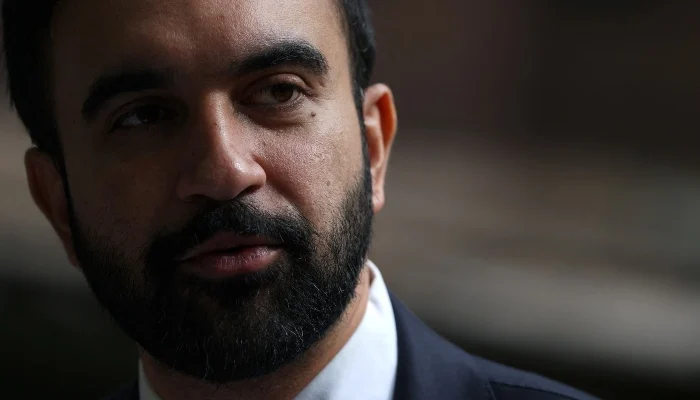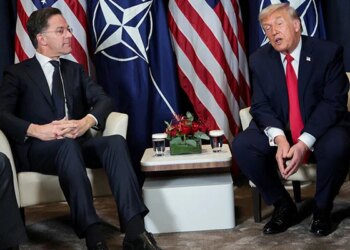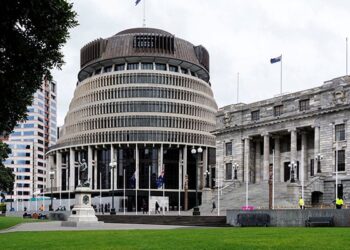Select Language:
Zohran Mamdani, a newcomer in the race, is maintaining a lead over Cuomo in recent polls, supported by key endorsements and contributions from small donors. Meanwhile, Cuomo’s campaign might benefit from Adams dropping out, potentially attracting more business donors. Trump’s criticism of Mamdani could inadvertently boost his support among New Yorkers who oppose the president’s policies.
The recent withdrawal by Mayor Eric Adams is unlikely to affect Mamdani’s momentum, according to political analysts. Mamdani, a 33-year-old Ugandan-born state assembly member, has been polling significantly ahead of Cuomo with just five weeks until election day. Trump’s ongoing attacks may actually enhance Mamdani’s appeal, especially among voters opposed to the president’s agenda.
Since winning a surprising primary victory in June, Mamdani has gained notable endorsements from figures like former Vice President Kamala Harris and New York Governor Kathy Hochul, along with consistent small-dollar donations. Adams confirmed last Sunday that he would suspend his independent campaign, which had been running parallel to the Democratic primary, leaving a direct contest mainly between Mamdani and Cuomo. Cuomo, who’s attempting a political comeback after resigning as governor amid harassment allegations, is running as an independent after losing the primary.
According to Basil Smikle, a Columbia University professor and political analyst, Mamdani is currently far ahead of Cuomo in the polls, and significant changes in the race seem unlikely unless there’s a dramatic shift in voter sentiment. Mamdani expressed that he prefers not to comment on Adams’ decision but emphasized that the issues facing New Yorkers—particularly affordability—remain unchanged regardless of campaign dynamics.
Prior to Adams’ withdrawal, a Marist University poll had Mamdani leading with 45% support, compared to 24% for Cuomo. Adams, who remained on the ballot despite dropping out too late for his name to be removed, was at 9%, while Republican Curtis Sliwa trailed with 17%. A poll from mid-September suggested Mamdani could secure about 46%, Cuomo 30%, and Sliwa 18%, indicating Adams’ exit might slightly favor Cuomo but unlikely to overturn Mamdani’s lead.
Trump has continued to target Mamdani, with recent comments on social media questioning his motives and suggesting Mamdani “needs the money from me to fulfill his fake communist promises,” which could backfire by rallying opposition. Political scholar Christina Greer notes that Trump’s interference often has the opposite effect, increasing support for Mamdani by highlighting dissatisfaction with Washington’s influence.
Over the summer, Mamdani outpaced Cuomo in fundraising, gathering approximately $15 million compared to Cuomo’s $9 million, primarily through a surge of small donations. Cuomo’s campaign might still see an uptick if business interests worried about Mamdani’s progressive agenda increase their contributions, which previously included millions funneled through independent political groups such as “Fix the City.”
A campaign insider indicated that recent donor interest is rising and efforts are underway to secure victory in November, especially if Cuomo can leverage support from powerful financial backers concerned with Mamdani’s focus on housing affordability and other progressive policies aimed at lower- and middle-income residents.







